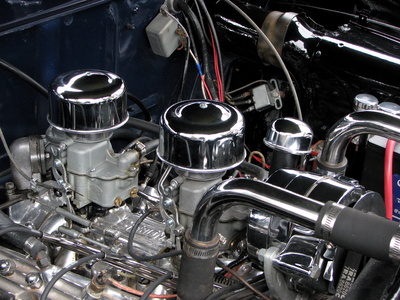An ignition coil is the coil in a vehicle's ignition system used to convert sufficient voltage to spark the spark plugs. The ignition control module helps manage the electrical current used by the ignition coil.

The ignition control module typically mounts on the engine. Some components in ignition control modules are heat-sensitive, thus modules are often covered in insulating material around the internal circuitry. A heat shield may also be placed between the engine and ignition control module.

The ignition control module switches transistors on and off based on input from the magnetic pulse generator in the distributor. The magnetic pulse generators transmits an AC voltage signal that corresponds with engine speed and the position of the crankshaft position. The ignition control module converts the analog signal into a digital signal, which essentially is used as an on/off switch by the ignition control module.

When an engine starts, the ignition system operates via module timing. The engine control module signals the ignition control module, which trips a switch in the ignition control module. Activating this switch enables the primary circuit transistor to operate via signals from the engine control module. The engine control module can then calculate ignition timing based on engine information sensors, such as engine speed and engine load.
